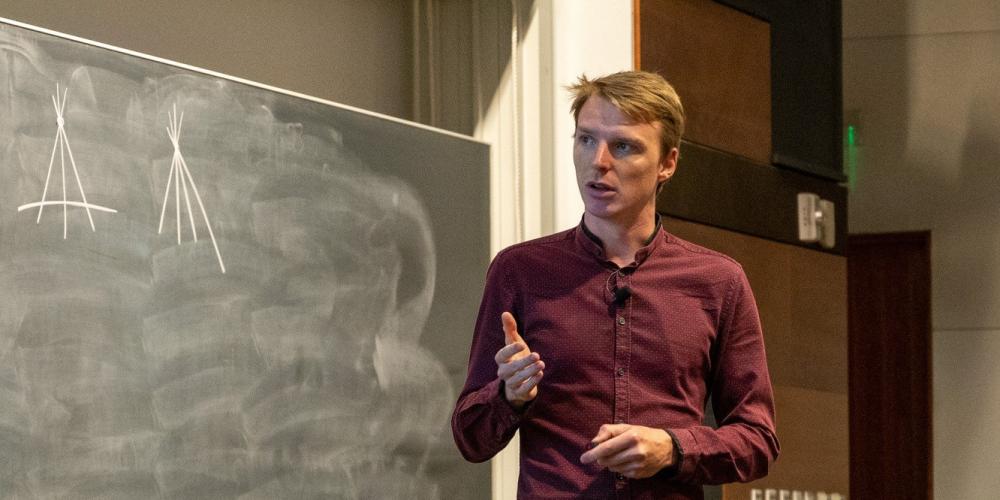
Mathematician Sam Mattheus has been awarded the 2024 Eos Pipet Prize for his groundbreaking solution to an 85-year-old mathematical problem. By employing Ramsey numbers, Mattheus managed to combine two seemingly unrelated fields—combinatorics and finite geometry—in an entirely novel way. His approach has dramatically narrowed the gap in the calculation of a specific Ramsey number, a question that has puzzled mathematicians worldwide since 1935.
Ramsey numbers concern networks, such as social networks. The central question is: how large must a network be before certain structures, like groups of friends or strangers, inevitably form? This concept was first introduced by Frank Ramsey in the early 20th century, yet calculating specific Ramsey numbers remains an extraordinarily complex task to this day.
"Our method is particularly effective for the really large networks, like Facebook," explains Mattheus. "Even in seemingly random networks, substructures inevitably appear if the network is large enough. Chaos becomes impossible," he adds.

"We didn't have to invent anything new"
Despite Mattheus’ progress, calculating Ramsey numbers remains a formidable challenge. The Ramsey number r(s, t) represents the maximum number of people a network can contain before either a clique of s friends or t strangers must form. Only a few of the smallest Ramsey numbers are known—r(4, 5) was calculated in 1995—while others, such as r(3, 10) and r(4, 6), remain elusive.
Mattheus focused his recent work on the Ramsey number r(4, t), which defines how large a network must be before groups of four friends or t strangers inevitably appear. While countless attempts have been made over the past 90 years, the gap between the upper and lower bounds for this number remained wide. Mattheus significantly reduced this gap by relying on precise mathematical structures, rather than random networks. He drew insights from finite geometry, particularly a structure known as the Hermitian unital, which had been known for some time but never applied to this problem before.
"We didn’t have to invent anything new," Mattheus reflects. "The ingredients were already there; we just had to combine them in the right way. Searching for something that doesn’t exist is counterintuitive," he adds. "Mathematicians will need to learn to approach problems differently."
This innovative method not only represents a significant breakthrough in the quest to solve Ramsey numbers but also opens new doors for future mathematical discoveries.
"This breakthrough won’t have an immediate impact on everyday life, but I’m convinced the work will have practical applications in the long run. Mathematics has this peculiar ability—today’s research might become relevant fifty or even a hundred years from now," Mattheus concludes.
Sam Mattheus Bio
Born in 1993, Sam Mattheus earned his PhD at the Vrije Universiteit Brussel (VUB) and later conducted research at the University of California, San Diego. He is currently back in Belgium, continuing his research. Although his focus is currently on mathematical problems, Mattheus doesn’t rule out the possibility of exploring other fields in the future.